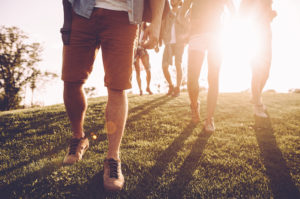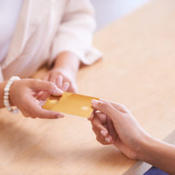 Anyone who has ever been in recovery from addiction or abuse can attest to the fact it is not easy. The process of recognizing there is a problem; increasing motivation to take control; seeking support; and identifying the types of people, environments, and situations that will allow for recovery may, at times, seem impossible. It is the difficulty of the work of recovery that makes recovery communities all the more important—in many cases, crucial.
Anyone who has ever been in recovery from addiction or abuse can attest to the fact it is not easy. The process of recognizing there is a problem; increasing motivation to take control; seeking support; and identifying the types of people, environments, and situations that will allow for recovery may, at times, seem impossible. It is the difficulty of the work of recovery that makes recovery communities all the more important—in many cases, crucial.
What Are Recovery Communities?
Recovery communities are organized and structured support networks that focus on the specific issues and needs that are relevant to the participants. For those recovering from substance abuse, the recovery community may focus on understanding the urges and triggers surrounding substance use. The community taps the experience of newer and longer-term community members to foster support as well as key strategies to prevent relapse.
In the instance of people recovering from sexual, physical, or emotional abuse, these communities provide a safe space for individuals to share and process their experiences; connect with others who have had similar experiences; and receive ongoing support to promote healing, self-confidence, and self-worth. They may also include a prevention aspect to help recovering people learn how to identify and avoid situations and environments that may be harmful. These communities can be broad or highly specific, virtual or in-person, open or closed.
Why Should I Join a Recovery Community?
Two of the most insidious issues with addiction and abuse are the feelings of shame and isolation that typically accompany those experiences. It becomes difficult to know who you can talk to, to know who is safe and who will provide support in helping work through things.
Recovery communities are a collection of people who are motivated both to promote their own recovery and to form relationships that decrease the sense of shame or isolation they faced because of the abuse or addiction.
Once you’ve identified yourself as someone in recovery, it becomes important to reengage with the world around you in new and different ways. For some people, this might mean finding new people to be around, people who help support and maintain habits you are adopting in your recovery.
Recovery communities are a collection of people who are motivated both to promote their own recovery and to form relationships that decrease the sense of shame or isolation they faced because of the abuse or addiction. Joining a recovery community allows those in recovery to connect with and help others. Knowing that your story and your engagement in a recovery community helps others through their own recovery process can have significantly positive effects on self-worth and self-efficacy.
How Do I Choose a Recovery Community?
First, it’s important to identify what you are recovering from. You are not limited to joining one recovery community. If, for example, you are recovering from intimate partner violence and substance abuse, you may find yourself part of two different recovery communities that focus on separate areas of recovery.
Second, consider what community of people you feel would be best suited to help you through recovery. You may decide you want to join a community with participants of the same gender identity or groups with a particular cultural understanding. Or perhaps you want to join a community that uses spiritual or religious practices that you want to incorporate into your life. Doing a little research on who is in the community beforehand may lead you to feel more comfortable when you join. It may also encourage greater participation and involvement within your chosen community.
Another key consideration when choosing a recovery community has to do with access and availability. Would you prefer a community that is local? While some people may prefer anonymity as they work through their recovery, others may enjoy knowing that members of their community are close by and readily accessible. Some community groups may be open, meaning new members might be able to join or drop by at any time. Other groups are closed or may have limited opportunities for new members to join.
Do in-person groups appeal to you or are you more interested in virtual communities? In-person communities allow you to be with people in real time but may be harder to attend because of physical or time restrictions, whereas virtual communities may allow you have greater access to members and get support during hours that an in-person group might not be available.
If you are interested in joining a recovery community and are already seeing a professional, they may be able to recommend a group for you. Well-known recovery communities include AA (Alcoholics Anonymous), Al-Anon (for family and friends), NA (Narcotics Anonymous), and RAINN (Rape, Abuse, and Incest National Network). If you are at the beginning stages of recovery, meeting with a mental health professional may be a valuable first step before entering a recovery community.

The preceding article was solely written by the author named above. Any views and opinions expressed are not necessarily shared by GoodTherapy.org. Questions or concerns about the preceding article can be directed to the author or posted as a comment below.

 Addiction as a Self-Regulation Strategy: Payoff Now, Pay Up Later
Addiction as a Self-Regulation Strategy: Payoff Now, Pay Up Later Alternatives for Addiction Treatment: If AA Isn't for You, Try SMART
Alternatives for Addiction Treatment: If AA Isn't for You, Try SMART Substance Addiction: 5 Myths (and Truths) About Relapse Prevention
Substance Addiction: 5 Myths (and Truths) About Relapse Prevention

Please fill out all required fields to submit your message.
Invalid Email Address.
Please confirm that you are human.
Leave a Comment
By commenting you acknowledge acceptance of GoodTherapy.org's Terms and Conditions of Use.